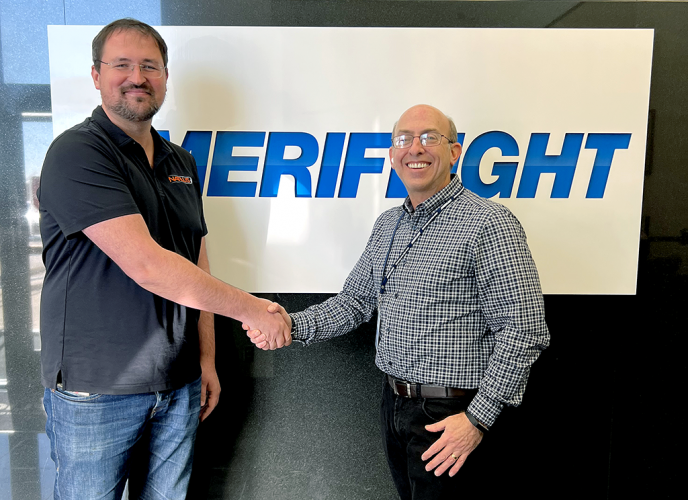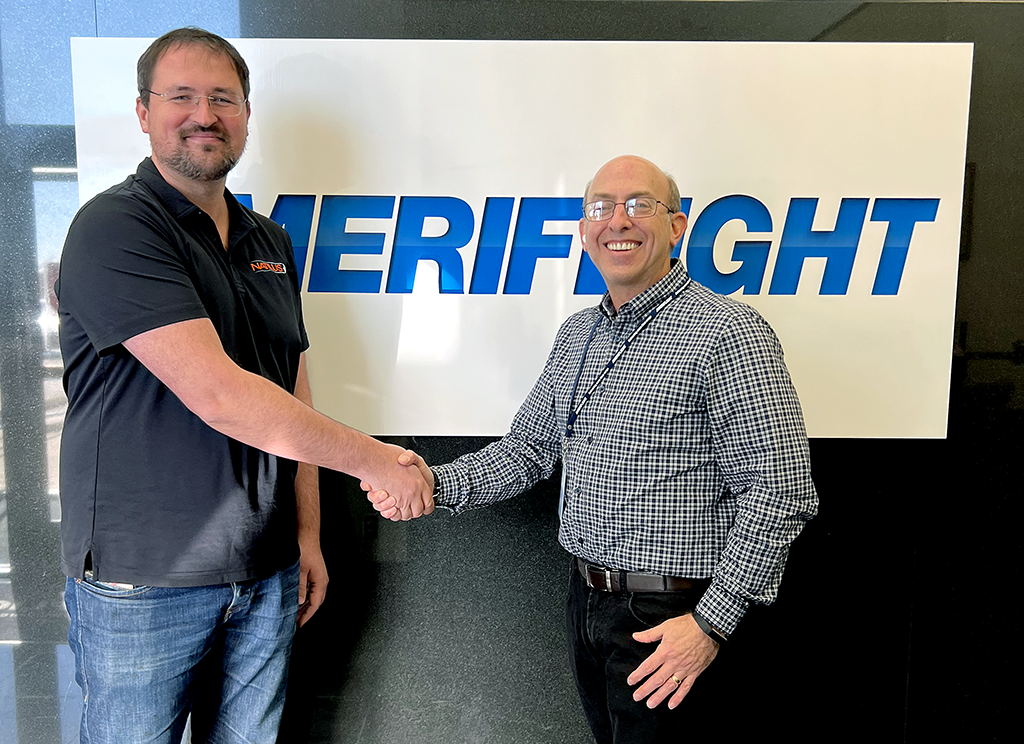- May 2023
Q&A With Ameriflight
Alan Rusinowitz, CEO and President
Ameriflight
Ameriflight is the largest Part 135 Cargo airline in the United States. As CEO and President, Alan is responsible for amplifying the company’s vision as the unparalleled leader in scalable, outsourced aviation services to the regional express airfreight market by planning and executing current and future business strategies. He is responsible for the company’s strategic vision, culture, and overall direction covering all aspects of the business, including the company’s operational performance, business objectives, and revenue generation.
With over 40 years in the industry, Rusinowitz joined the Ameriflight team in 2022 with an extensive background in aviation. Prior to Ameriflight, he served 22 years with a cargo airline as Executive Vice President and Chief Operating Officer. Notably, he was a key leader in overseeing the development and implementation of the company’s strategic business goals and objectives, as well as successfully leading the stock sale of the company and its subsidiaries.
We spoke with Alan about the future of air cargo operations and Ameriflight’s role in realizing that future.
Ameriflight is the largest US-based Part 135 operator. As such, how do you see the future of air cargo operations and what needs to be done to grow and make the industry more competitive with shipping?
Rusinowitz: As we’ve seen over the past decade or so, the demand for air cargo operations has increased drastically as online shopping and the expectation for quick delivery across large distances has increased. In an effort to remain competitive, customers will continue to push for fast solutions for cargo transportation, which is largely fulfilled by our industry. As cargo airlines and customers continue to outgrow previous solutions, we’ll need to improve efficiency, lower costs, and combat barriers.
In January, Ameriflight signed a purchase agreement for 20 Natilus remote-piloted regional air freighters, marking Natilus’ first sale of its blended-wing-body (BWB) Kona aircraft to a U.S.-based customer. What is the significance of this sale for the future of Ameriflight? What do you see as the greatest assets this new fleet of purposefully built Natilus cargo aircraft brings to your company?
Rusinowitz: As a leader in the aviation industry, and even more so in the Part 135 Cargo niche, Ameriflight must continue to be a pioneer when it comes to innovative solutions for growth and maintenance. Pairing ourselves with Natilus, which is creating technology at the forefront of autonomous innovation is the next step for us. The greatest advantages we see the new fleet bringing to Ameriflight is lower costs of operation, increased range, and growth roadblock solutions.
How will your company use Natilus aircraft to expand its cargo business (in terms of revenue and augmented business operations worldwide)?
Rusinowitz: The Natilus Kona, which we have on order, is comparable in size to our largest aircraft and has a greater than 7,500-pound payload which is right in line with our current and pending customer base and well-suited for what we do best – short-to-medium-haul flights, transporting high priority freight. Our intention is to use the aircraft to supplement our integrator operations and grow our 24/7, on-demand expedited supply chain solutions (ESCS) products, developing new areas of business. In addition to that, the long-range capability of the Kona opens up many new doors. One area of particular interest in regard to expanding our cargo business at the moment is our entry into government transportation contracts.
Are there routes not being served today which could be fulfilled by Natilus aircraft? What opportunities will this bring to you?
Rusinowitz: We’re seeing route demand from a number of avenues we’re not currently able to facilitate due to various reasons, such as aircraft quantity and range limitations. The addition of the Natilus aircraft to our fleet will allow us to remove certain growth roadblocks and take on these pending opportunities, of which include those government cargo contracts, as well as military contracts both state and federal.
There is currently a pilot shortage which can severely impact air cargo operations, especially as passenger travel expands. How can remote-piloted vehicles, such as the fleet of Natilus aircraft solve some of these issues to enhance operations?
Rusinowitz: The shortage of pilots has been a pain point in the aviation industry for years, and will be for many more years to come. There is also an impending aircraft shortage. As current cargo fleets continue to age and eventually retire, there will not be enough aircraft with the needed capabilities and the appropriate price tags to replace them. This lack of pilots and suitable aircraft can easily lead to stagnation, crippling the growth sustainability and growth potential of cargo airlines. This is especially true with airlines, like Ameriflight, who provide an important middle-mile service to legacy cargo carriers and companies. To solve both issues, innovation, like a new multi-service sector unmanned aircraft, is needed to maintain current business and provide an avenue for expansion.
Natilus has publicly announced its commitment to sustainability, and in particular, to designing aircraft and furthering new fuels that lead to more economical operations for clients. What are your thoughts in this arena?
Rusinowitz: Long-term economic growth without negatively impacting the environmental aspect is a notion on the minds of all big players in the aviation industry, and that’s no different for us. What you all are doing with the Kona is a multi-win when it comes to sustainability. First, the blended wing body (BWB) design provides reduced fuel consumption leading to lower costs, as well as the environmental benefit of lower emissions. Second is the ability to use an alternative SAF fuel to once again lower costs and emissions. Lastly, the ability to modify the aircraft to utilize alternate power sources, like hydrogen-powered engines, as they are developed and certified is inviting and I look forward to that progress.
Where do you expect the greatest growth in the worldwide air cargo business to be within the next decade and why?
Rusinowitz: If I could predict that, I would have Wall Street banging down my door. Jokes aside, for Ameriflight, I see sustainable growth through extension of the middle-mile air delivery network to additional remote areas, reducing trucking requirements. Additionally, I see an increase in military cargo delivery needs due to the Armed Forces pilot shortage.



